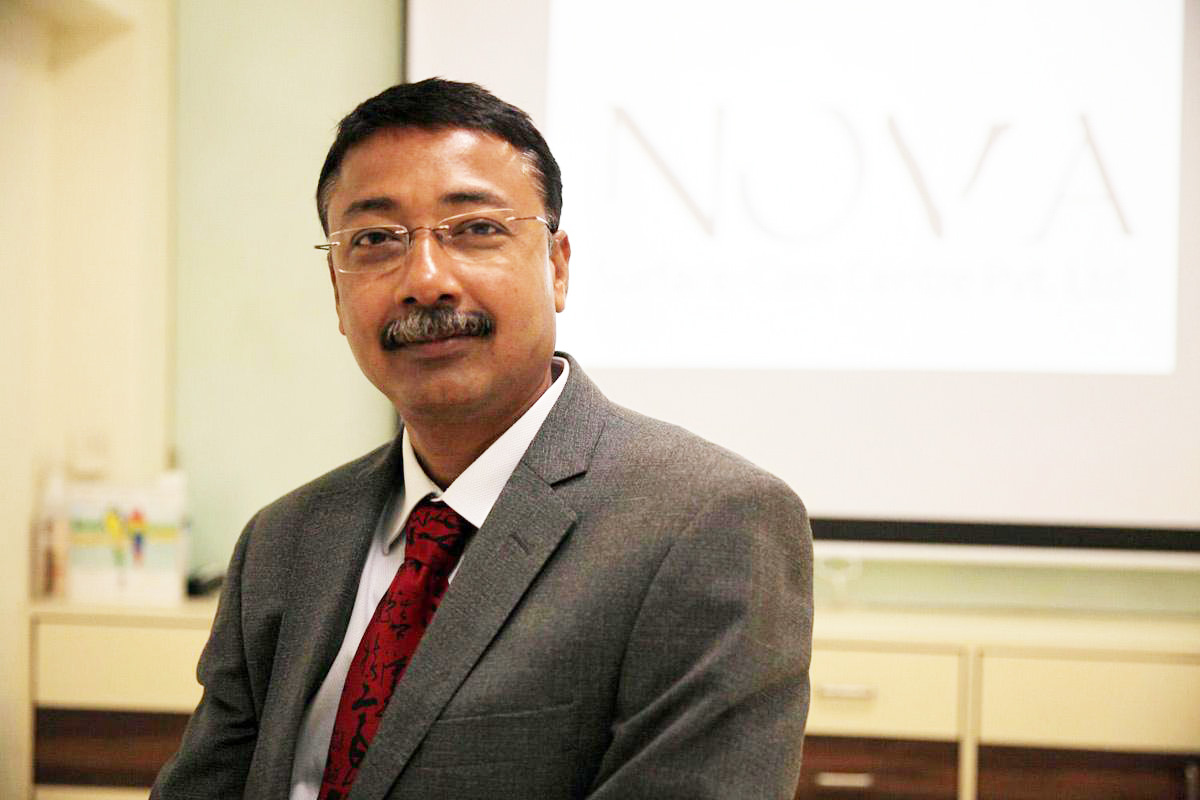 Dr. Swapan Ghosh, a leading polymer scientist and founder – director of Nova Surface Care Centre, a surface science research company – has developed a path breaking and cost effective invention for anti fog on glass. The product in form of a coating will ensure that the glass will be free of fog. The coating works on a concept of formation of non-scattering film of water instead of single droplets.
Dr. Swapan Ghosh, a leading polymer scientist and founder – director of Nova Surface Care Centre, a surface science research company – has developed a path breaking and cost effective invention for anti fog on glass. The product in form of a coating will ensure that the glass will be free of fog. The coating works on a concept of formation of non-scattering film of water instead of single droplets. Says Dr. Swapan Ghosh, “India being the region with high humidity levels, fog poses a great challenge due to moisture condensation. After condensing, tiny droplets are formed in such a way that it scatters light very easily and because of this visibility through transparent substrates gets hampered. This can create havoc especially during monsoons. The invention especially with its affordability can be used on trucks, rickshaws and other public transport enabling wide range use and ensuring fewer mishaps during accident prone weather conditions.”
Currently, there is an unmet need for long-lasting and mechanically robust anti-fog coatings that can operate under a variety of different fogging challenges (e.g., temperature and humidity). Most of the anti-fog coatings won’t withstand washing, so the product application must be repeated regularly.
On his invention Dr. Swapan Ghosh says, “We have developed a coating material which not only has a single layer of application with conventional do-it-yourself (DIY) types of tools but also shows excellent mechanical durability (can take 500 wet scrub cycles) and optical transparency in both cold and hot condition and in extremely high relatively humidity (99%). In this invention, we have used hydrophilic polymers from renewable bio-feed stack that allows water droplets to spread homogeneously over the surface and don’t show any swellability due to high degree of cross-linking. The resulting coating system forms a thin, transparent, single layered coating that does not alter the optical properties of the surface in fogged condition.”
This coating is suitable for application on glass mirrors in bathrooms, doors of shop refrigerators, windshields, eyeglasses, goggles, camera lenses, and many other transparent glass or plastic surfaces. Patent is being applied to protect this invention. Negotiations are already underway with major chemical companies interested in obtaining a license for this technology. The market price of the product is estimated

